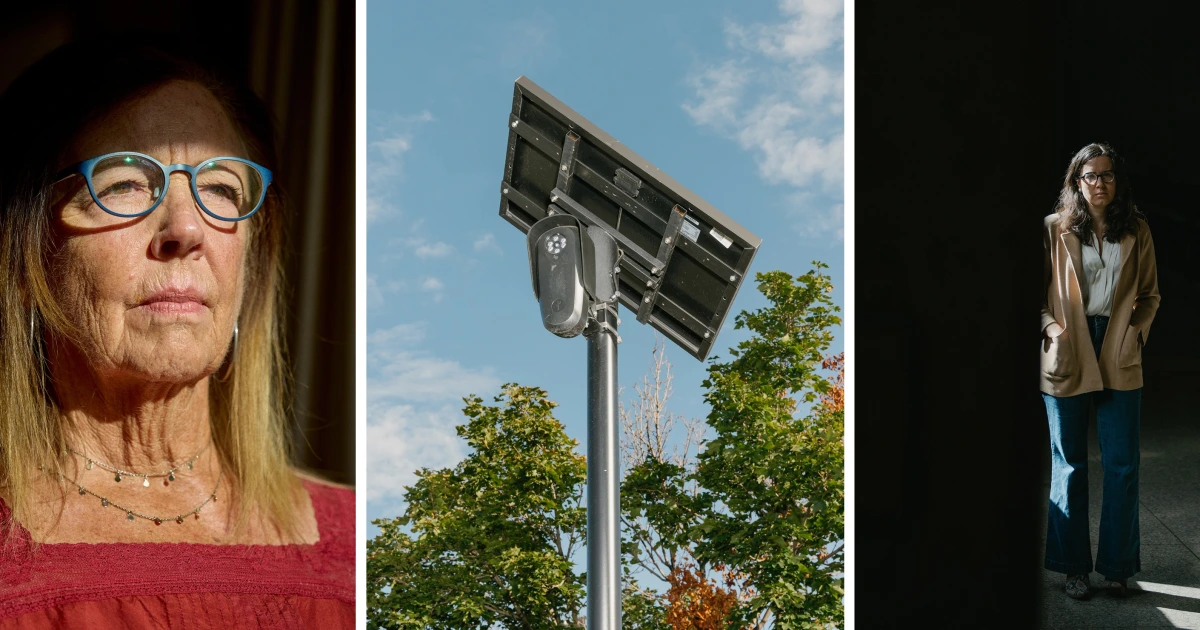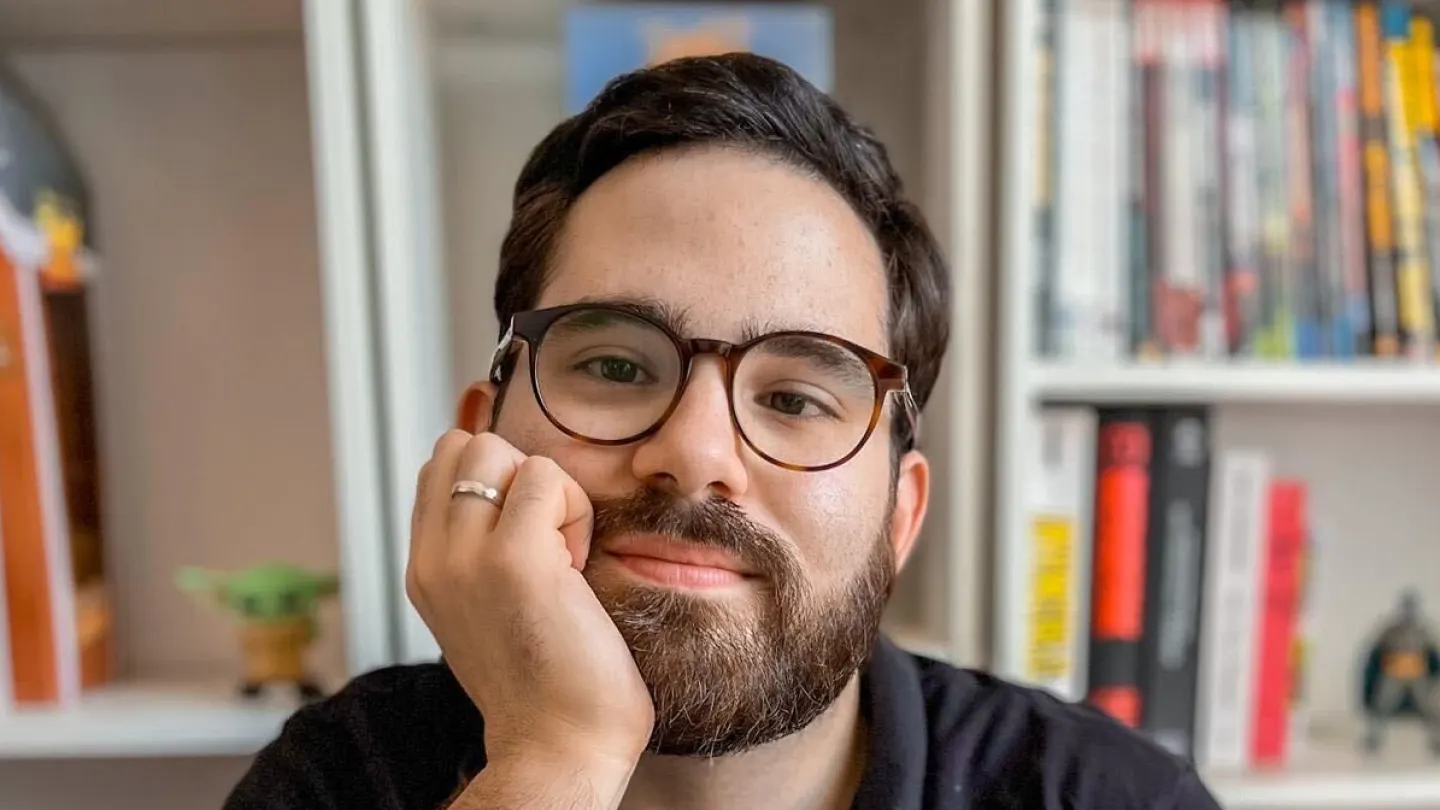Copyright NBC News

Boyce had read that Sedona had quietly signed a new contract with Flock Safety, the country’s largest provider of automatic license plate readers (ALPRs), which had installed four cameras to build a database of every car that drove by. Eight more were planned for later in the year. She was furious to learn that she was being tracked by a system paid for with her tax dollars and without her consent. “I’d drive by them and flip them off and curse them,” she said of the cameras. “It was like we were building our own prisons, and we were paying for it.” So Boyce took action, rallying her community to push for change. She is one of a growing number of Americans who have gotten involved in local politics to dispute the use of Flock equipment in their towns. NBC News spoke to activists and local politicians pushing back in seven states — Arizona, Colorado, New York, Oregon, Tennessee, Texas and Virginia — who have worked to end their cities’ and towns’ contracts with Flock and get the cameras removed. Their politics fall across the spectrum, from conservative constitutionalists to progressives aghast at the idea of their communities’ potentially sharing location data with the Trump administration as Flock did this year, united by growing worries about their privacy. So far, their success is limited, particularly compared with the rapid spread of the company’s reach, but awareness of the issue is quickly spreading. While automatic license plate readers have been fixtures on American roads for decades, Flock, founded in 2017, centralizes their data like never before, creating a vast, interconnected surveillance database for law enforcement agencies using information from its suite of products, including facial recognition cameras, drones and audio detectors. With the help of her husband, Boyce set up a simple website, livefreeaz.com, where Sedonans could share their email addresses and receive instructions on how to voice their displeasure with the cameras to the City Council. She talked to her friends and neighbors about the cameras and encouraged them to attend council meetings. Boyce, who says she voted for President Donald Trump and is a staunch supporter of Health and Human Services Secretary Robert F. Kennedy Jr., found herself making common cause with people on the left who also opposed the cameras. “I’ve had to really be open to having conversations with people I normally wouldn’t be having conversations with,” she said. Her coalition won out. On Sept. 9, the City Council voted unanimously to end Sedona’s contract with Flock. Sedona is at least the eighth city since this summer to cancel or pause its contract with Flock, or let it lapse, after local protests, joining Austin, Texas, and the smaller towns of Oak Park, Illinois; Eugene and Springfield, Oregon; Evanston, Indiana; Scarsdale, New York; and Gig Harbor, Washington. A Flock spokesperson said the number of paused or canceled contracts is is small compared to the nearly 800 U.S. cities that have voted to pass Flock contracts this year. The scale of Flock’s network and the amount of data its users have access to are unique. Flock contracts with more than 5,000 law enforcement agencies across the United States, its CEO has said, and scans over 20 billion license plates per month, according to Flock's website. More than 75% of those offices opt in to provide information to Flock’s live national database, which allows law enforcement agencies from across the country to view drivers’ license plate numbers, locations and directions and the times of recording without warrants, Flock told the office of Sen. Ron Wyden, D-Ore. In an ongoing lawsuit accusing Norfolk, Virginia, of violating the Fourth Amendment’s privacy protections by using the cameras, two plaintiffs said they were tracked hundreds of times over a few months this year. A Flock spokesperson told NBC News that the number was misleading, as Flock ALPRs might take multiple photographs in a single second as a vehicle crosses an intersection, but declined to provide specific numbers. In response to the Norfolk lawsuit and other allegations that Flock violates the Constitution, a spokesperson pointed to the fact that to date, courts have generally agreed with the company that ALPR searches shouldn’t require warrants and don’t violate the Constitution. Norfolk declined to comment on ongoing litigation. Flock’s databases are augmented by information provided by nongovernment businesses and people who use certain products. Flock contracts with more than 500 businesses and brands and more than 3,000 private organizations, like homeowners’ associations, which have the option to automatically share the data they collect with their local police, a spokesperson said. In October, Amazon’s Ring signed a contract with Flock that will allow police to request Ring doorbell camera video from people’s doorsteps, the company said. Previously, Ring allowed police to request video from Ring customers through its Neighbors app, but that feature was discontinued last year outside of emergencies. The company touts its service as an inexpensive and valuable tool for underfunded police departments. Its default policy is to delete data from its servers after 30 days, though law enforcement officers can choose to download it onto their own devices. As Flock has spread, activists have taken pains to locate and map Flock cameras. Flock gives law enforcement offices the option to join its transparency portal and share such information as how many cameras they use or how many vehicles they capture. Only a small fraction of offices join it — around 700 out of Flock’s more than 5,000 law enforcement customers — according to Eyes on Flock, an activist website that organizes and tracks those numbers. Another activist-run website, Deflock.me, is working to offer a more complete picture, saying it has collected over 45,000 submissions across almost every state from more than 3,000 users, documenting purported Flock cameras in parking lots and intersections around the country. In addition to Flock’s spread across the country, activists and critics have been alarmed by its use by federal agents and its alleged use in immigration enforcement and other politically charged situations. In May, the tech news site 404 Media reported that a police officer in Johnson County, Texas, searched more than 83,000 cameras around the country for a woman suspected of having self-administered an abortion. Flock rebutted the claim, citing the sheriff’s insistence that the office was treating the woman as a missing person and that her alleged abortion was incidental to the search. But last month, the Electronic Frontier Foundation, a nonprofit digital rights group, published a sworn affidavit from the case’s lead detective that the case was actually a death investigation on behalf of the fetus. A Flock spokesperson deferred to the sheriff’s office, where a spokesperson told NBC News that the search “was conducted solely to determine if she was in the area so that we could attempt to locate her and check on her welfare.” Flock’s work with federal officials has drawn some high-level scrutiny. In a letter to Flock’s CEO in October, Wyden said Flock had provided Customs and Border Protection, Homeland Security Investigations, the Secret Service and the Navy’s Criminal Investigative Service access to its systems, citing statements from Flock officials. CBP conducted about 200 searches of Flock’s database during the pilot program. Wyden wrote that because of that work, he “must now recommend that communities that have installed Flock cameras reevaluate that decision.” In Denver, a so-called sanctuary city, many have grown increasingly wary of Flock, tying it to federal immigration enforcement. Sarah Parady, a Denver City Council member, said the mayor had signed an initial contract with Flock that didn’t require a City Council vote, allowing a pilot program to start with little awareness. Denver’s 2023 pilot program with Flock began with 18 cameras, then significantly expanded the next year and added 93 more for $339,000, Parady said. The City Council votes only on budgetary items that cost at least half a million dollars, so it didn’t vote on the expansion. “We did get a short presentation around February 2024. It was a slide about what they were doing to combat auto theft. I didn’t latch onto it the way I should have,” Parady told NBC News. “It is bats---,” she said. “We should have been a little less guileless, more savvy about this whole situation.” Partially redacted police search logs, obtained through a records request by the Colorado branch of the American Civil Liberties Union and viewed by NBC News, showed that law enforcement agencies accessed Denver’s Flock ALPR data in more than 1,400 immigration searches, including ones simply labeled “ICE,” since 2024. A spokesperson for the Denver Police Department said in an email, “There is no confirmed cases of Denver data being used inappropriately.” A Flock spokesperson said the company doesn’t have a contract with U.S. Immigration and Customs Enforcement or any other arm of the Department of Homeland Security, but the company’s CEO, Garrett Langley, said in a blog post this year that it is legal and within law enforcement norms for local law enforcement agencies to share information with federal counterparts. “The point is: it is a local decision. Not my decision, and not Flock’s decision,” he wrote. As news about the company has rolled in, Denver’s status with Flock has oscillated. When the police department arranged for the city to sign a new, $666,000 extension in May, the City Council voted it down 12-0, and the contract lapsed. In July, Mayor Mike Johnston signed a temporary contract with Flock for $498,509.07, just shy of the half-million-dollar threshold that would require the City Council’s approval. On Oct. 22, Johnston signed another extension with Flock through March — for no additional fee, and with additional safeguards — while he was evaluating the city’s future with the company, Johnston’s office told NBC News. Some City Council members held a raucous town hall in opposition that evening. A spokesperson for the ACLU of Colorado told NBC News about 500 people attended, most of them in large overflow rooms. More than a dozen local civil liberties groups have condemned Flock. Some local Flock opponents have fought back with public records requests. After Josh Frankel of Scarsdale, New York, read that the town had signed a contract to install Flock cameras, he started furiously filing requests under New York’s Freedom of Information Law and helped promote a petition to take them down. More than 400 people signed the petition, which Frankel saw as a good start for a town of 18,000. He started attending every biweekly Board of Trustees meeting to speak out about it. In August, the mayor announced the contract had been canceled. His records requests, which he shared with NBC News, have so far shown that Scarsdale had planned 32 Flock ALPRs. “I’m not like some kind of privacy freak. I’m aware of the Fourth Amendment, but you know, I don’t have it tattooed on my butt,” Frankel said. “But the notion that Scarsdale police could see cameras in Des Moines, Iowa, and vice versa, is really disturbing.” Other Flock opponents have been less successful. Jay Hill, a factory worker in Murfreesboro, Tennessee, said he has knocked on “hundreds” of doors passing out flyers and advocating for voters to push the city to end its contract with the company. But in April, the City Council approved a deal to go from 15 Flock cameras to 27. “It really is a tracking system for law-abiding citizens. That’s what I try to explain to people,” he said.



